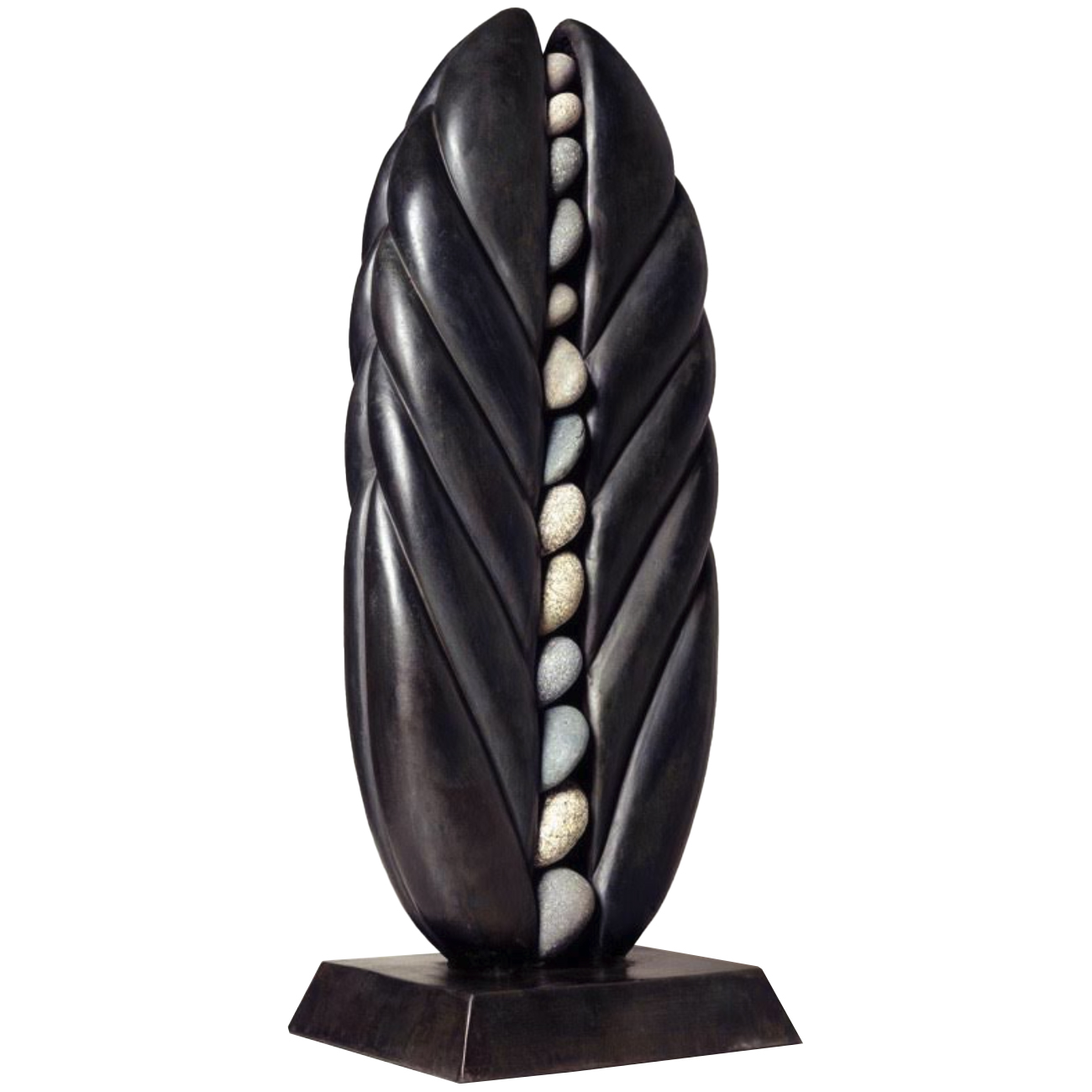McMullen Museum of Art
Permanent Collection
Murray Dewart (1947–)
Sabbath Loaf, after 2013
Bronze, river stones
McMullen Museum of Art, Boston College, Gift of the artist in honor of Ben Birnbaum

Inspired by East Asian forms, raw materials, and the harmonization of contrasting elements, Dewart’s sculptures regularly feature the interplay of natural and rough-hewn stone with finished metals. In Sabbath Loaf, Dewart nestles found river rocks between two hollow cast bronze pillars to integrate what is traditionally a garden sculpture into its natural landscape. The river stones, worn smooth by years of running water in contrast to the smoothness of the bronze, which is polished by hand, represent two contrasting scales of time—geological and human. The loosely laid stack of stones, held up by the rigidity of the cast metal underscores the ever-present tension between mass and gravity. “The secret of sculpture,” Dewart explains, “is getting the feeling that the life force is pushing from the inside out. You get it in bread.”
The challah loaf, depicted here, is of Ashkenazi Jewish origin and is made from a braided dough traditionally eaten on major Jewish holidays and during the seventh day of rest, or the Sabbath (Shabbat). Looking straight on, the challah bread appears as one loaf split in two, a reference to the ritual mitzvah of hafrashat challah, the splitting of the loaf prior to baking as an offering to priests (Kohanim). From an angle, one sees two loaves standing upright with a space between, a possible reference to the two loaves presented at the first Sabbath meal on Friday nights to commemorate those that fell as manna from heaven every Friday evening to feed the Israelites in the desert during their Exodus from slavery in Egypt. The hollow space within and between the split loaf may further point to the Middle Hebrew root of the word challah (chet-lamed-lamed, חָלָל), which translates to “space,” “hollow,” “pierced,” or “broken.”
Murray Dewart works in Brookline, Massachusetts, and is co-founder of the Boston Sculptors Gallery, which has provided a venue and support for Boston sculptors since 1992.

Rachel Chamberlain
Manager of Education, Outreach & Digital Resources, McMullen Museum